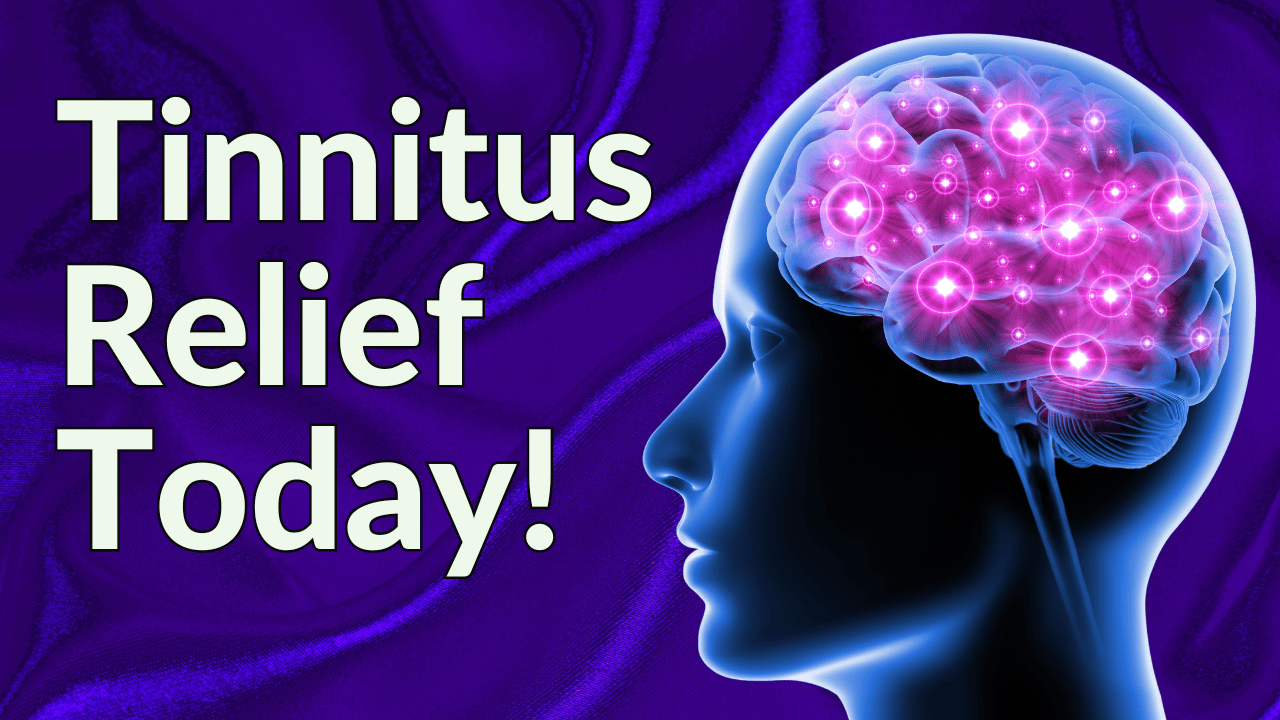Dealing with bothersome tinnitus can be very stressful. When left unmanaged, persistent tinnitus can spark anxiety, depression, insomnia, or even panic attacks. Many people who experience these distressing mental health conditions find relief with anti-anxiety medications. Xanax is the most commonly prescribed medication to reduce anxiety, so naturally you may wonder if Xanax can treat both conditions at once.
What Is Tinnitus?
Tinnitus is defined as the perception of sound when there is no external source. Everyone’s experience with tinnitus is different. Some people hear a humming, chirping, buzzing, or ringing in one or both ears. Others experience what’s called pulsatile tinnitus – a blood flow condition in which tinnitus is synchronized with your heartbeat.
"Treble Health helped me reduce my tinnitus by about 80%, and now I can live my life again!"


"Treble Health helped me reduce my tinnitus by about 80%, and now I can live my life again!"
– Steve D.
Book a free consultation to learn which Treble Health solution is right for you. Join Steve and thousands more who have found lasting tinnitus relief.
Most people experience tinnitus at some point in their lives, and it’s often a temporary nuisance. But for as many as 20% of the population, severe tinnitus is a persistent and bothersome problem that significantly impacts quality of life.
Symptoms And Causes Of Tinnitus
Tinnitus is typically a symptom with an underlying cause, not a health condition on its own. It’s most often caused by hearing loss, but there are many things that can spark tinnitus. Loud noise exposure, head injuries, ear infections, medication interactions, or even a common cold can cause a ringing in your ear.
If known, underlying causes should always be treated first – in some cases, this is enough to reduce or even eliminate tinnitus altogether. Other conditions can require long-term management and tinnitus treatment can prove more challenging.
Living with bothersome tinnitus can be a frustrating experience as it can impact your physical and mental wellbeing. The constant sound can cause or worsen mental health conditions like anxiety and depression as well as interfere with your ability to concentrate or sleep. Unfortunately, tinnitus can be worsened by stress itself.
If you’ve addressed potential causes of tinnitus but are still experiencing a persistent ringing in the ears, you may wish to seek more treatment. For some people, addressing the stress and anxiety associated with tinnitus is the first line of defense.
What Is Xanax?
Xanax is the most well-known brand name for the generic drug alprazolam. This prescription medication belongs to a class of medications called benzodiazepines, which are typically used to relieve anxiety, insomnia, and muscle spasms. These drugs change the way certain chemicals in the brain work by increasing GABA neurotransmitter activity, which in turn slows down some of the activity of the brain. This has a relaxing effect that reduces feelings of stress and anxiety.
Xanax is a fast-acting benzodiazepine, so it is often prescribed as a short-term anti-anxiety medicine for quick relief from panic disorders. For many people, Xanax is very effective in relieving or avoiding panic attacks.
Side Effects Of Xanax
Like all prescription medications, Xanax has side effects. Some common side effects of Xanax include trouble concentrating, memory loss, dizziness, muscle weakness, weight changes, and more.
It’s important to understand that because Xanax is short-acting, it takes effect quickly, but also wears off quickly. The risk of dependence, tolerance, and withdrawal symptoms are higher with Xanax than some other benzodiazepines. It is potentially habit-forming if used for an extended period of time. If your healthcare provider has prescribed Xanax or its generic equivalent, be sure to follow instructions carefully and always take the prescribed dosage.
Using Xanax For Tinnitus



Anxiety and tinnitus sometimes go hand-in-hand. Since Xanax is primarily used as a treatment for anxiety disorders, you may assume taking anti-anxiety medications is a good option for managing both conditions. Unfortunately, this isn’t usually the case.
Using Xanax for tinnitus would be considered off-label, which means this is not the FDA intended use of the drug. In fact, the American Academy of Otolaryngology discouraged doctors from prescribing benzodiazepines as a tinnitus treatment because the risks outweigh the benefits.
Xanax may help reduce anxiety and the insomnia that sometimes accompanies tinnitus, and indeed some people have reported that Xanax helped relieve other tinnitus symptoms. This is likely because the drug has an overall calming effect. However, Xanax alone will not help with the ringing in your ears, especially since tinnitus can be a long-lasting condition. In fact, using Xanax as a direct treatment for tinnitus can worsen or prolong tinnitus symptoms.
How Xanax Affects Your Perception Of Tinnitus
While Xanax can provide short-term relief for some tinnitus symptoms, benzodiazepine class drugs are shown to have long-term negative effects:
- Because tinnitus can be a long-term condition, the use of short-term medications is not recommended and the risk of abuse is higher. Long term use of Xanax can be damaging to your overall health, as well. It can become less effective over time as your brain becomes less responsive to the drug.
- High doses of benzodiazepines can even reduce neuroplasticity, which is your brain’s ability to adapt and retrain itself. This interferes with your natural ability to habituate – the process that effectively teaches your brain to become less aware of your perception of tinnitus. Since Xanax has a sedative effect, it slows your brain’s natural process of adapting to the constant sound of tinnitus.
- After using benzodiazepines, withdrawal can even trigger new tinnitus. A recent case report showed that after years of prescribed benzodiazepine use, tinnitus be a symptom of withdrawal. In this case study, severe tinnitus interfered with sleep, concentration, and worsened anxiety.
On the other hand, Xanax and other anti-anxiety drugs can help improve your mental wellness, which can in turn minimize the emotional burden of tinnitus. Under a doctor’s supervision, prescription Xanax is an effective way to support your mental health.
There are still unanswered questions about the relationship between Xanax and tinnitus, and research is ongoing. At this point, most doctors prefer to manage tinnitus without the use of benzodiazepines.
Tinnitus Treatment Without Xanax



There are many other treatment options that can help with tinnitus, outside of the use of Xanax or other anti-anxiety medications.
Instead of relying on anti-anxiety medications, it is generally more effective to habituate to tinnitus via sound therapy, cognitive behavioral therapy (CBT), relaxation techniques, and lifestyle modifications.
Tinnitus Retraining Therapy (TRT)
Tinnitus retraining therapy (TRT) uses your neuroplasticity to help you manage your response to tinnitus and reduce stress by combining the use of sound therapy plus counseling and education. While you can’t directly control the intensity of your tinnitus, you can modify how you react to intrusive sounds. Over time, this technique helps you to perceive tinnitus less and no longer react to it if you do perceive it. Many people also find tinnitus relief through sound therapy, which involves listening to specific sounds to mask the ringing in your ears.
CBT
Cognitive behavioral therapy helps change the way you think, feel, and behave in response to tinnitus. It is a type of counseling that can help you manage the thoughts and behaviors surrounding anxiety and tinnitus.
Lifestyle Modifications And Relaxation
Lifestyle modifications like relaxation techniques, eating well, staying active, and exploring stress-reducing techniques like meditation can also help. Mindfulness is a great way to help refocus your attention away from tinnitus and toward other thoughts and sensations.
With the right treatment plan, you can find relief from tinnitus-related anxiety symptoms and improve your quality of life. Contact the audiologists at Treble Health to learn more about your treatment options.
Take Medications As Prescribed
Regardless of your approach to treating tinnitus and anxiety, you should always follow your doctor’s recommendations. If your doctor has prescribed Xanax, continue taking it as your doctor recommends. The benefits of your medications may outweigh possible side effects.
Always talk to your doctor before making any changes to your prescription medication. Do not stop, start, or change your medication dosage without speaking to your healthcare provider first.
Although taking Xanax may be part of your mental health treatment plan, it shouldn’t be used exclusively as a treatment for tinnitus. If you’re concerned about the negative impact Xanax can have on tinnitus, your doctor might be able to change your prescription to a different drug class that may be just as effective at treating your anxiety, while not compromising neuroplasticity
Next Step: Book Free Consultation
- 75% of patients reduced their tinnitus within three months after following our recommendations.
- "I feel like Treble Health literally gave me my life back." - Randy S. (verified customer)
- Join thousands of people who have reduced their tinnitus after scheduling a free consultation.


















